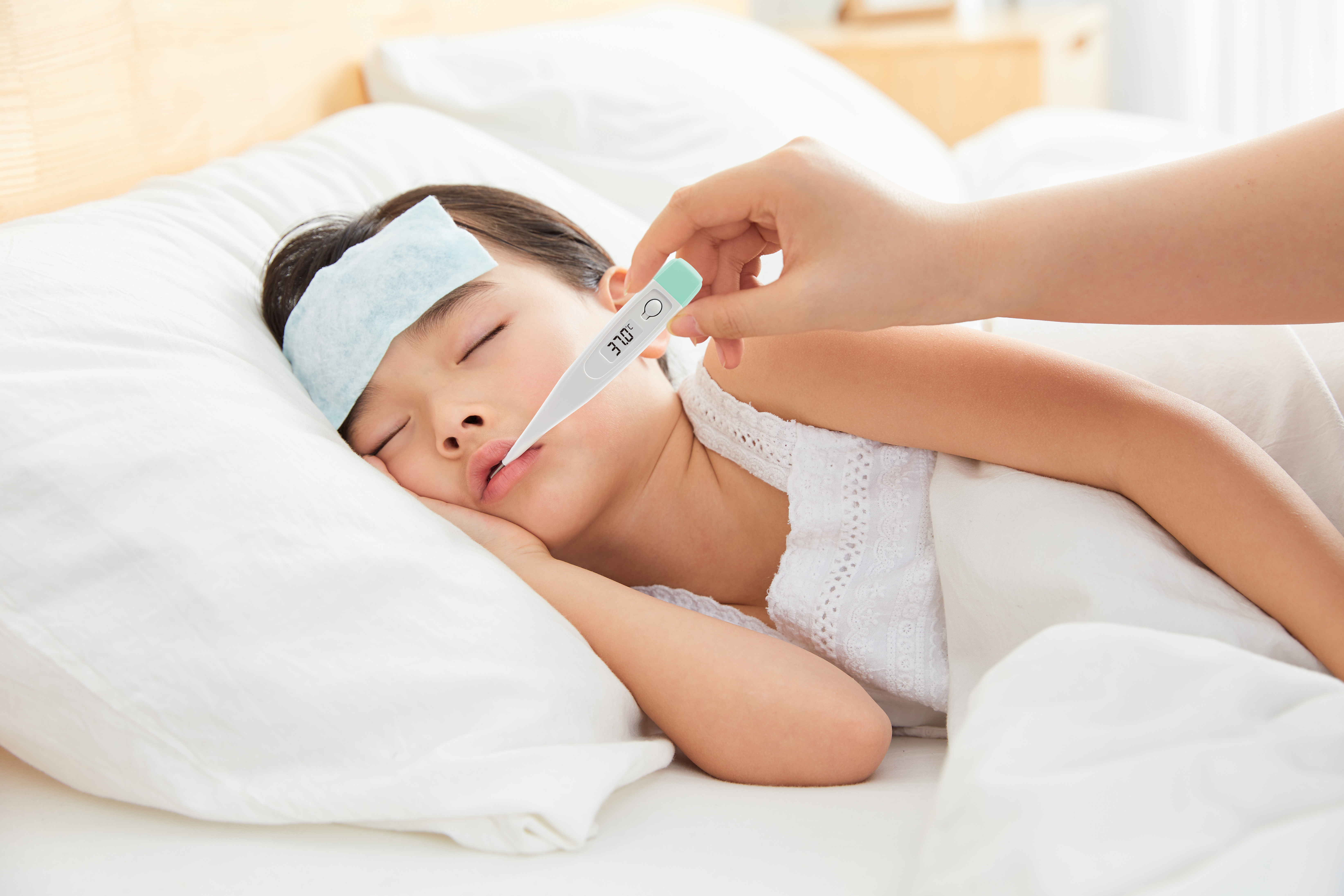Don’t Fear the Fever
Once you have a temperature reading, here’s how to determine whether it’s normal or a fever.
• For adults, a normal body temperature can range from 97°F to 99°F.
• For babies and children, the normal range is anywhere between 97.9°F to 100.4°F.
• Anything above 100.4°F is considered a fever.
But there’s no need to be worried right away when a fever is present. While a fever can be uncomfortable, it isn’t always a bad thing. It’s a sign that your body is doing its job — fighting an infection.
Most fevers go away on their own, and medication isn’t always needed. If a child or adult’s temperature is between 100 and 102°F, they generally feel OK, and are acting normally, they should drink plenty of fluids and rest. If a child or adult seems uncomfortable, over-the-counter medications may help lower a fever.
When to Call Your Doctor
While most fevers aren’t dangerous, you should seek medical advice in the following instances:
Infants
• Call the doctor immediately if a baby younger than two months old has a fever, even if there are no other signs or symptoms of illness.
• When an infant younger than three months has a rectal temperature of 100.4°F or higher.
• A baby between the ages of three and six months has a rectal temperature of up to 102°F and seems irritable or sleepy, or has a temperature higher than 102°F.
• A child between the ages of six and 24 months has a rectal temperature higher than 102°F that lasts longer than one day but shows no other symptoms.
• A baby has a fever for more than three days.
Toddlers/Older children
• If a child of any age has a fever that rises above 104°F.
• If your child refuses to drink, has a fever for more than two days, is getting sicker, or develops new symptoms, it’s time to call your pediatrician.
• Go to the emergency room if your child has any of the following: a seizure, trouble breathing or swallowing, a stiff neck or headache, a sticky, dry mouth and has no tears with crying, is hard to wake up, or won’t stop crying.
Adults
• If an adult has a temperature of 103°F or higher or has had a fever for more than three days.
• Adults should seek immediate medical help if their fever is accompanied by other symptoms.
Note: These are general guidelines. If you have any concerns about a fever regarding yourself or someone in your family, call your doctor.
Cleaning and Storing Your Thermometer
Once a fever has subsided, don’t forget about properly cleaning and storing your thermometer! Be sure to keep the instructions that came with your thermometer for specific cleaning and storage instructions. These general tips for maintaining your thermometer may also be helpful.













